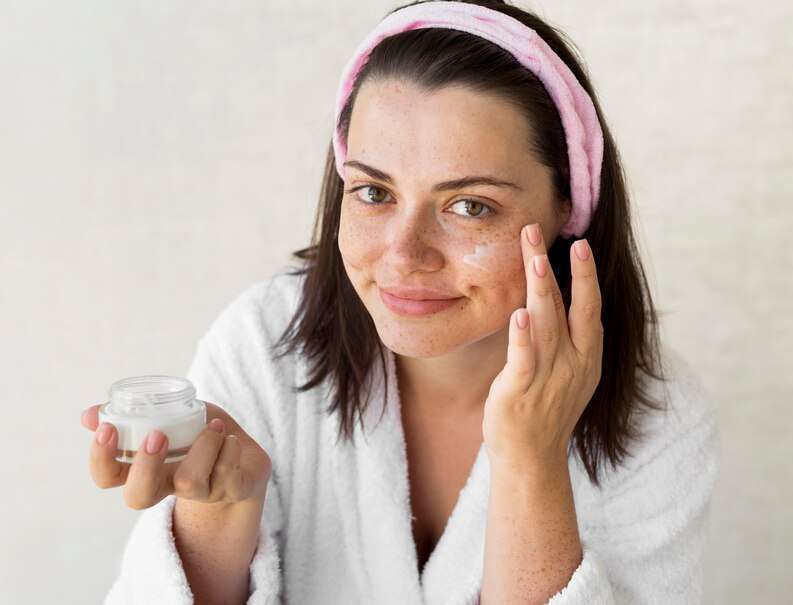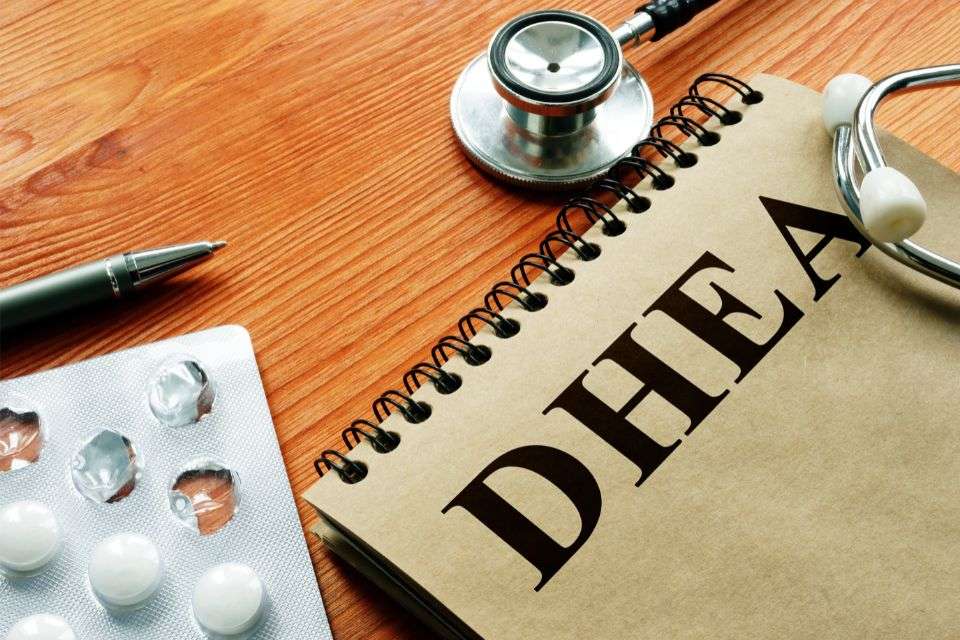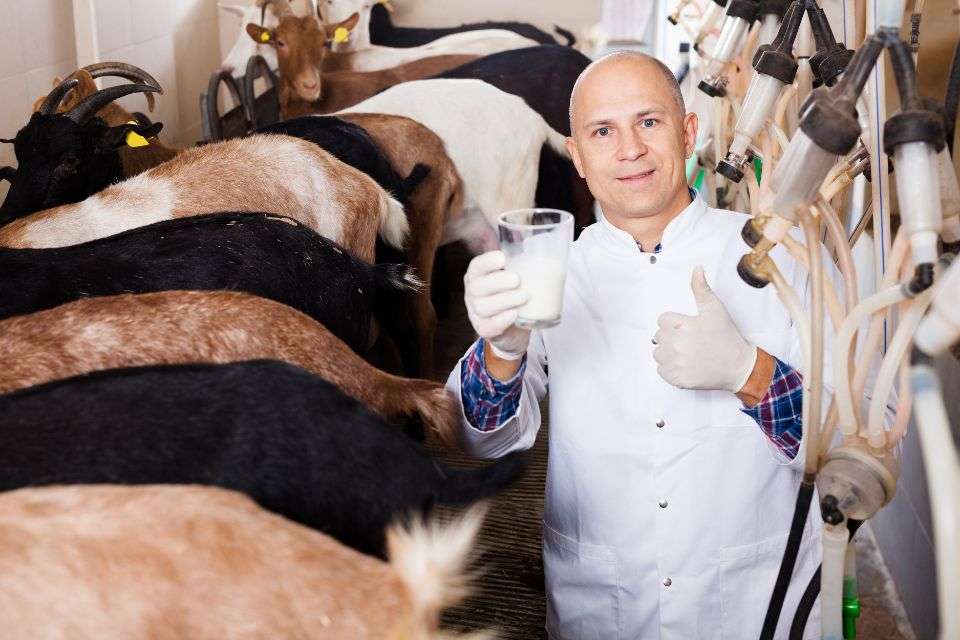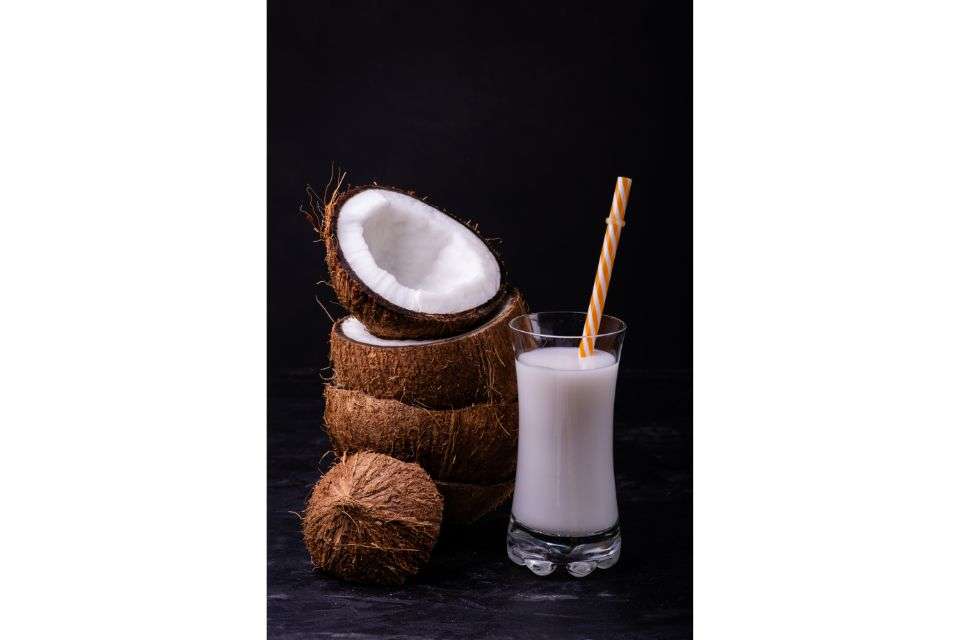
Some studies show that dairy can be the cause of face problems and can even lead to acne. Your food has a big effect on how your face looks. Some foods, like dairy products, can hurt the skin, even containing vitamins and good fats. To find out if the milk you drink daily is causing your acne.

Does dairy make acne worse?
Acne is not directly caused by eating dairy products. But there is evidence to show that dairy products are linked to acne. The American Academy of Dermatology (AAD) did a study that found that women who drank two or more glasses of milk daily were 44% more likely to get acne than other women in the poll.
>>Get Your Secret Guide Here<<
There is also proof that certain chemicals found in dairy products can affect acne. Most farms give dairy cows hormones to make them grow faster so they can produce more milk. Research shows that getting your milk and milk products from cows given hormones can mess up your body’s normal hormone balance.

In turn, this can lead to a breakout and other skin problems. Another idea says that a baby’s body makes enzymes that promote the body in breaking down milk. But as they grow, they become less able to digest milk. This causes lactose intolerance, leading to several health problems like gas, indigestion, and skin problems like pimples and rashes.
Another idea says that when dairy products are eaten with many refined foods or processed sugars, it can mess up the body’s insulin levels. Because of this, your skin is more likely to get acne. There are many kinds of dairy products, and not all cause acne similarly.
Some things, like skim milk, can make you break out. A study released in the American Academy of Medicine journal shows a clear link between drinking skim or low-fat milk often and getting acne. The study shows that people who eat mostly skim milk are more possible to have acne.
How does eating dairy affect acne?
Several studies have demonstrated that some parts of dairy products and acne are linked well. Let’s find out which dairy product parts may make you more likely to get acne.
>>Get Your Secret Guide Here<<
Growth Hormone and IGF-1
The IGF-1 hormone affects how well your growth hormone works and how well other parts of your bodywork. Several studies have been made to decide whether dairy products and higher IGF-1 levels go together. Some studies have shown that milk can make the body make more IGF-1.

A study of older people showed that their IGF-1 levels could increase by 10% if they drank 3 cups of milk daily for 12 weeks. The production of oil, the appearance of skin pores, and the growth of skin cells are all affected by how much IGF-1 is in the body. So, it is clear that having more IGF-1 can create more acne.
Dehydroepiandrosterone (DHEAS)
DHEAS is a different hormone found in cow’s milk that has been linked to acne in a good way. A study showed that many women who get acne can be affected by how much DHEAS they have. DHEAS can make hormones such as testosterone and DHT levels go up. Higher amounts of these androgens can also cause acne blemishes.

Insulin spikes
Like IGF-1, insulin is a part of the body that can worsen hormonal acne. And it’s pretty strange that some dairy products, like yogurt, can raise your insulin level even more than white bread. This could happen because of the sugar that is added to commercial yogurt.
Milk Allergies & Lactose Intolerance
Acne can be caused by not being able to digest lactose. Lactose intolerance causes stomach pain and other problems with the gut. It changes the balance of germs in the gut, causes inflammation, and can even cause oxidative stress, which leads to acne.
>>Get Your Secret Guide Here<<
Read Also: Causes, Treatments, And Preventing Ice Pick Acne Scars
How Can You Tell If Your Body Can Handle Dairy?
If you believe dairy products are causing or worsening your acne, it’s time to find out. Here’s how to do it:
Step – 1
Don’t try more than one kind of dairy food at once. Maintain track of how much you consume and drink and how your breakouts change. Keeping track of how your breakouts change when you eat dairy products can help you find a link.
Step – 2
When you have breakouts, try going without dairy and pay attention to what happens. Take note of whether your acne seems to be getting better, clearing up faster than normal, or not changing at all.
Step – 3
You can also give up milk and other dairy products for good. Since acne comes and goes, it could take an extended period to tell if it’s helpful. If home cures don’t help your acne, you might require to pay attention to how much cheese you eat to find out what’s causing it.
Which milk doesn’t cause acne?
If you tend to get acne, you should try to find out if the milk you drink has made it worse. If cow milk is the problem, you can try other things like:
Goat milk
- It is better than cow milk since it has less lactose (milk sugar). Because goat milk has so little sugar, it doesn’t trigger an insulin spike.
- Goat milk is less likely to cause allergies than cow’s milk because it has 89% less Alpha s1 Casein, the main protein that causes allergies.
- Its fat molecules are smaller, which makes them easier to digest and less likely to make you feel sick.
- Goat milk is blended independently, making it easy to digest. On the other hand, cow milk that comes in a package is blended in a lab.
- The only trouble is that goat milk has chemicals that can change how baby goats grow. So, there is only a small opportunity that it will give you acne. Raw goat milk is safe to drink, even for people with acne, so if you want to drink milk, choose that.

Nut-Based Milk
You can choose almond, walnut, or additional nut-based milk instead of animal milk. You can use nut milk instead of cow milk, which is much safer. The best thing about almond and nut milk is that it doesn’t have a lot of hormones that make oil.
>>Get Your Secret Guide Here<<
Nut milk, conversely, has antioxidants and vitamin E, which eliminate the free radicals that cause wrinkles. Nut milk from almonds is great for acne-prone skin because almonds contain healthy fats. Because nut milk is anti-inflammatory, it can help lessen the redness and swelling of acne.
Coconut Milk
Coconut milk is an alternative to cow milk that doesn’t come from cows. It’s good for skin that gets acne. Coconut milk contains nutrients that help clear skin, like magnesium (26% DV per cup), potassium (142% DV per cup), and selenium. It also has little sugar and omega-6 fatty acids, which cause inflammation.

Conclusion
Acne is an inflamed disease that can be hard to deal with. But it’s easy to control and eliminate when you know what’s making your acne, like dairy products. Some studies and research have shown that dairy products can make acne worse for some people and even cause it in others. But not everybody goes through a similar thing. If you notice a link between your acne and the amount of dairy you eat, you should talk to a doctor.